On this day across history, imperial aggression was resisted or rolled back by indigenous peoples in both the Battle of the Teutoberg Forest (9) and the Battle of Stirling Bridge (1297). In the first case, it was one of the greatest defeats in the history of the Roman Empire, and dissuaded them, even commanded as they were by the great Emperor Augustus, from further conquests in Germany. In the second case, William Wallace and Andrew Moray turned back the English forces at the bridge near Stirling, and while details of the battle remain disputed, it’s clear it gave the Scottish nobles and forces belief that they could hold their own in future battles. READ more… (9) – (1297)
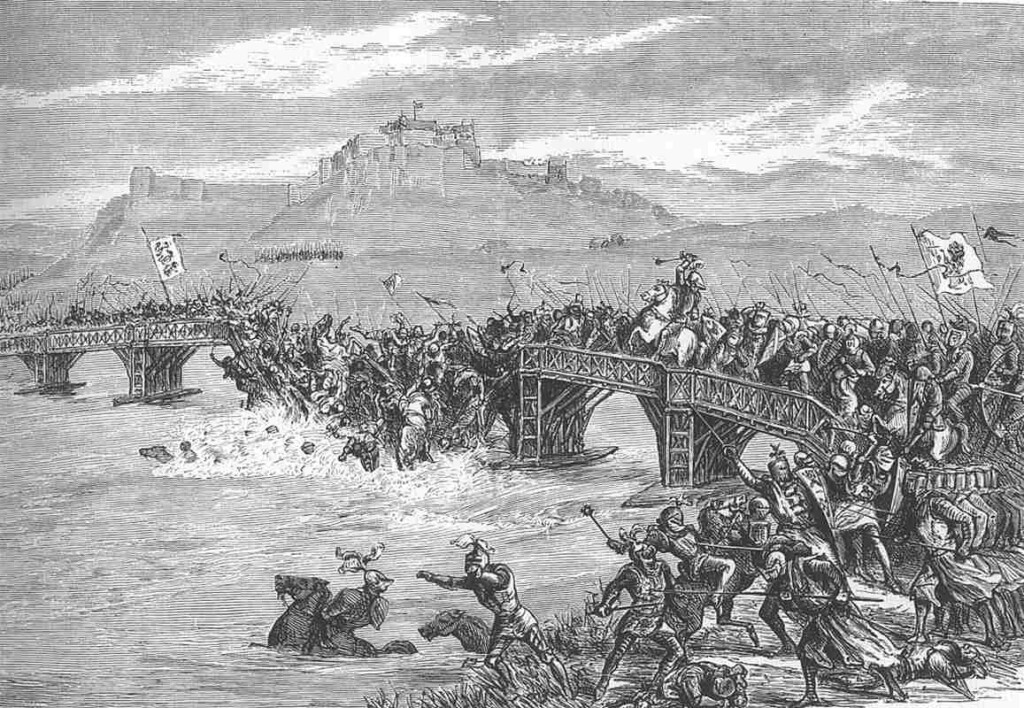 The Battle of Stirling Bridge
The Battle of Stirling BridgeAt Teutoberg, the battle took place near the modern village of Kalkriese, in Lower Saxony. Several Roman legions (5,000 men or thereabouts) were led in a long column by Publius Quinctilius Varus, whose general, Arminius, was preparing to betray him. Arminius was a German who had acquired Roman citizenship and joined the army. He had sent advanced word to a coalition of Germanic tribes that the Romans would be passing down a road flanked on one side by a wooded hill and the other with a marsh.
While the army was spread out across this hill, German tribes attacked them on the morning of September 8th, and harried them for days. A downpour began, and the Romans undertook a night march to escape, however Arminius had constructed a wooden palisade on the road which the Romans were forced to try and storm—failing, and afterwards disintegrating as another German tribe attacked them from side.
 Bad weather in the Teutoberg Forest – Nikater – CC 4.0.
Bad weather in the Teutoberg Forest – Nikater – CC 4.0.While Romans are often looked at as a civilizing force, their conquests of a very similar people to the Germans—the Gauls—has been described as the ‘Celtic Holocaust,’ and Arminius and the Germans likely saved their whole people and posterity from a similar fate by banding together.
The Battle of Stirling, where the Scottish beat back attempts by the English to enter Scotland, also features a clever tactician making use of the terrain—in this case a wooden bridge which the English foolishly attempted to cross even though only two men abreast could do so. Once William Wallace, a commoner and commander of the Scots, saw that enough of the English had crossed the bridge, he ordered his men to storm down the lip of a nearby hill with their spears.
They pushed back the charge of the English heavy cavalry, and with more and more of the English army still on the bridge, there was nowhere for those who had already crossed to flee to, allowing the Scots to inflict tremendous casualties on the invading army.
MORE Good News on this Day:
195 years ago today, American landscape painter Thomas Hill was born in Warwickshire, England. Loosely affiliated with the Hudson River School, he joined the burgeoning movement of American landscape painters in awe of North American natural beauty, and his time in the Sierra Nevada mountains of California, and the White Mountains of New Hampshire contributed their splendor to the majority of his canvasses.
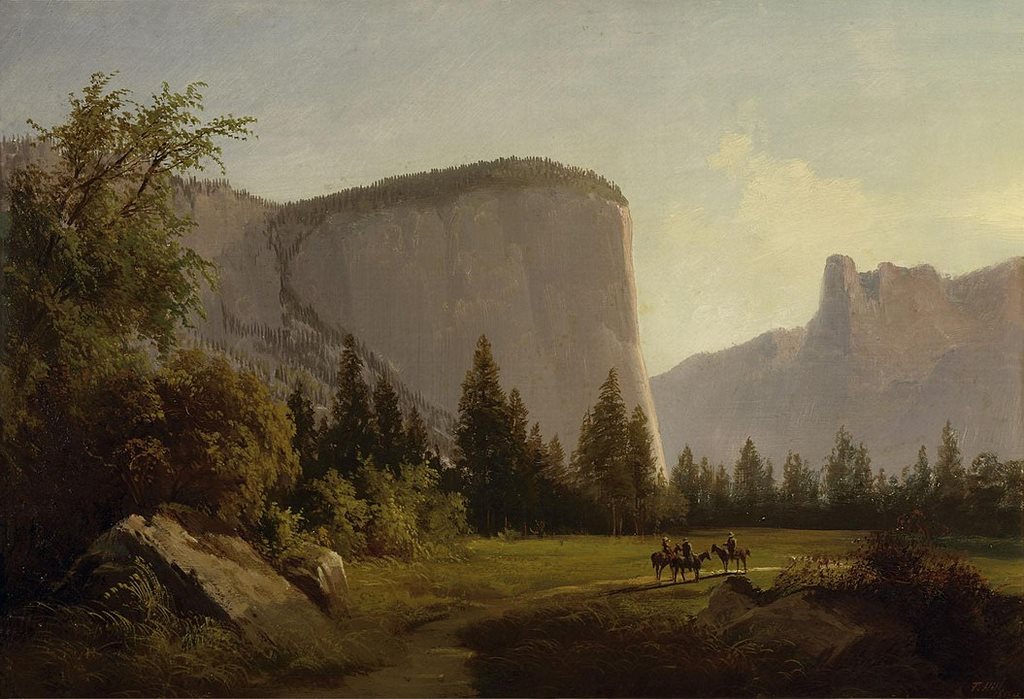
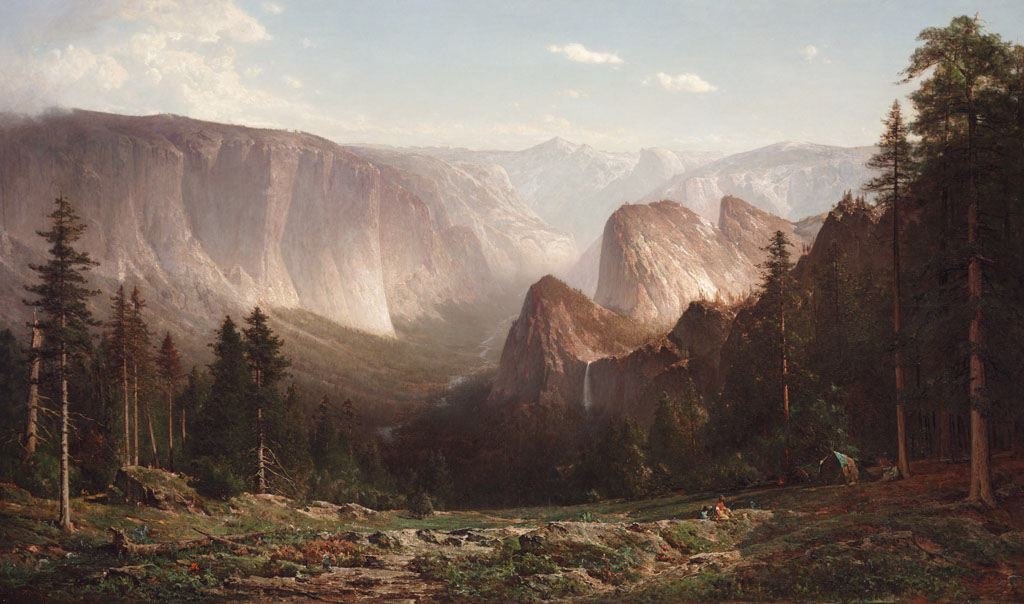 Moving to the United States from Birmingham with his family at the age of 15, he would marry a local of Massachusetts and sire 9 children. One of his daughters, Anne Mary Hill, had a son whose paintings captivated America like few others could—Norman Rockwell. (1829)
Moving to the United States from Birmingham with his family at the age of 15, he would marry a local of Massachusetts and sire 9 children. One of his daughters, Anne Mary Hill, had a son whose paintings captivated America like few others could—Norman Rockwell. (1829)
Today is Grandparents Day in America, a day to honor the elderly population and express gratitude and love for your grandparents. 43 years ago, the day was officially proclaimed by President Carter, after decades of lobbying from two distinct people, Jacob Reingold and Marian McQuade, the West Virginia woman who persuaded her state to become the first one to celebrate elders with a special day. (1979)
63 years ago today, the World Wildlife Fund was formed to save diverse species across the planet. With 35 million supporters and offices in nearly 100 countries, WWF has helped establish protected areas like the Galapagos National Park and worked to conserve iconic species including pandas, tigers, rhinos, and elephants – giving these animals and many more a brighter future.
 copyright WWF / by Bernard DE WETTER
copyright WWF / by Bernard DE WETTERThey also launched the world’s first eco-labels for food and consumer products, engineered debt swaps for nature in Africa, and advocated for the adoption of global agreements on wetlands, wildlife trade, biodiversity, and climate.
“Thank you to the millions of people who have trusted and supported us, and to the thousands of WWF staff and trustees across the world for 60 years of passion and determination,” said Marco Lambertini, Director General of WWF International.
 copyright WWF / Alex Walsh
copyright WWF / Alex WalshFrom its beginnings as a small group of committed naturalists, WWF has expanded from protecting species to a systemic approach to conservation and sustainable development, tackling the main drivers of nature loss including energy and food production, as well as improving the governance of natural resources. Its familiar panda logo has become a symbol of hope that people and nature can live in harmony. SEE the dozens of WWF headlines on GNN… (1961)
23 years ago today, while waiting for a train in New York City to commute to work as a comic book illustrator, Gerard Way witnessed the World Trade Center collapse after the 9/11 attack.
 2014 photo by rufus, CC license
2014 photo by rufus, CC licenseThe experience prompted him to start a new band, My Chemical Romance, for which he became the lead singer. He realized, “I need to do something that means something or my life will mean nothing… You don’t have to save the world, but make some kind of difference or say something that has some kind of value to it.” In March 2013, at the height of their success, the band broke up and Way became a successful solo artist for Warner Bros. Records. (2001)
On this day 27 years ago, the Mars Global Surveyor reached its destination—a stable orbit around the red planet.
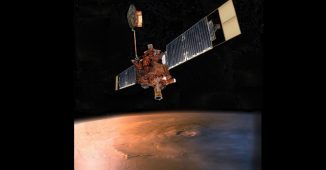 NASA
NASANASA’s robotic spacecraft traveled nearly 466 million miles in 300 days (750 Million km) on a quest to map and examine the entire planet, from the ionosphere down through the atmosphere to photographing the surface—including images that appeared to prove the presence of water.
Powered by solar panels, it made 88 orbits, and continued its expedition for ten years, even taking pictures of two other NASA spacecraft that had arrived. After its launch in 1996, the mission was extended twice, outlasting expectations, before the robot in 2006 finally quit transmitting a signal. The MGS remains in a stable near-polar circular orbit at about 450 km altitude, and will crash onto the surface of the planet in about 2047. (1997)
Happy 84th Birthday to Brian De Palma, the film director and screenwriter of such films as The Untouchables and the 1996 Tom Cruise debut in Mission: Impossible.
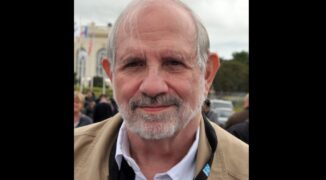 2011, by Georges Biard, CC license
2011, by Georges Biard, CC licenseBorn in New Jersey, he was a computer enthusiast enrolled at Columbia as a physics student, but became enraptured with the filmmaking process after viewing Citizen Kane, and the films of Alfred Hitchcock, to whom he has often been compared.
With a career spanning over 50 years, he is best known for his work in the suspense, crime, and psychological thriller genres, with such box office hits as Carrie, Dressed to Kill, Scarface, and Carlito’s Way. Ironically, he says he doesn’t like “scary movies” and would never go to see his own films. (1940)
And, on this day in 1945, the Dutch Physician Willem J Kolff performed the first successful kidney dialysis using his artificial hemodialysis machine.
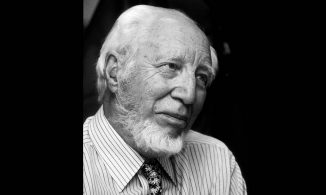 Photo by KNAW, CC license
Photo by KNAW, CC licenseAfter becoming a doctor in the Netherlands, one of his first patients was a 22-year-old man who was slowly dying of renal failure. This prompted Kolff to perform research on an artificial dialyzer. His first prototype, built from orange juice cans, used auto parts, and sausage casings, lead to the successful treatment two years later that has saved the lives of millions ever since. (During his residency as a youth in 1940, Kolff also organized the first blood bank in Europe.)
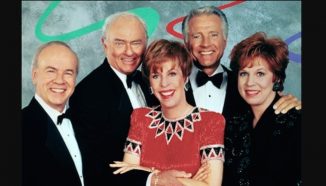
Also on this day in 1967, the Carol Burnett Show premiered on CBS. The influential variety show ran for 11 seasons and featured the unforgettable ensemble of Carol Burnett, Vicki Lawrence, Harvey Korman, Lyle Waggoner, and Tim Conway.
The show won 25 Emmy Awards and was ranked number 16 on TV Guide’s 50 Greatest TV Shows of All Time. WATCH a few classic scenes below, from The Carol Burnett Show.
And, finally, on this day in 1893, the World’s Parliament of Religions conference opened—the very first organized interfaith gathering.
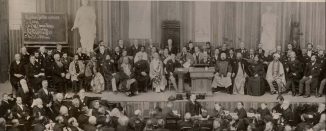
7000 people met in Chicago from at least 11 religions at the inaugural event that brought together both Eastern and Western spiritual traditions. Organized by the Swedenborgian layman and judge Charles Carroll Bonney, the vision of the Parliament was for a just, peaceful, and sustainable world.
Their idealistic values adopted included…
SHARE the Milestones, Memories, and Movies…
Source link

